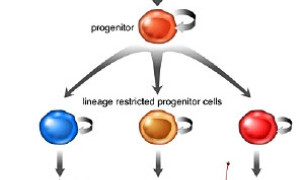 5 Terms
5 TermsHome > Industry/Domain > Chemistry > Physical organic chemistry
Physical organic chemistry
Physical organic chemistry is the study of the interrelationships between structure and reactivity in organic molecules. It a part of organic chemistry by using tools of physical chemistry such as chemical equilibrium, chemical kinetics, thermochemistry, and quantum chemistry.
Industry: Chemistry
Add a new termContributors in Physical organic chemistry
Physical organic chemistry
inverse isotope effect
Chemistry; Physical organic chemistry
A kinetic isotope effect which k l /k h l /k h > 1. The isotope effect will normally be "normal" when the frequency differences between the isotopic transition states are smaller than in the ...
inverted micelle
Chemistry; Physical organic chemistry
The reversible formation of association colloids from surfactants in non-polar solvents leads to aggregates termed inverted (or inverse, reverse or reversed) micelles. Such association is often of ...
ion pair
Chemistry; Physical organic chemistry
A pair of oppositely charged ions held together by Coulomb attraction without formation of a covalent bond. Experimentally, an ion pair behaves as one unit in determining conductivity, kinetic ...
ion pair return
Chemistry; Physical organic chemistry
The recombination of a pair of ions R + and Z - formed from ionization of RZ. If the ions are paired as a tight ion pair and recombine without prior separation into a loose ion pair this is called ...
ionic strength
Chemistry; Physical organic chemistry
In a solution of fully dissociated electrolytes the ionic strength is defined as I = 0.5Σ i c i Z i 2 , in which c i is the concentration and Z i the charge number of ionic species i. μ is ...
ionization
Chemistry; Physical organic chemistry
The generation of one or more ions. It may occur, e.g. by loss of an electron from a neutral molecular entity, by the unimolecular heterolysis of such an entity into two or more ions, or by a ...
ionization energy
Chemistry; Physical organic chemistry
The minimum energy required to remove an electron from an isolated molecular entity (in its vibrational ground state) in the gaseous phase. If the resulting molecular entity is considered to be in ...
Featured blossaries
rufaro9102
0
Terms
41
Blossaries
4
Followers
Acquisitions made by Apple
 5 Terms
5 Terms

